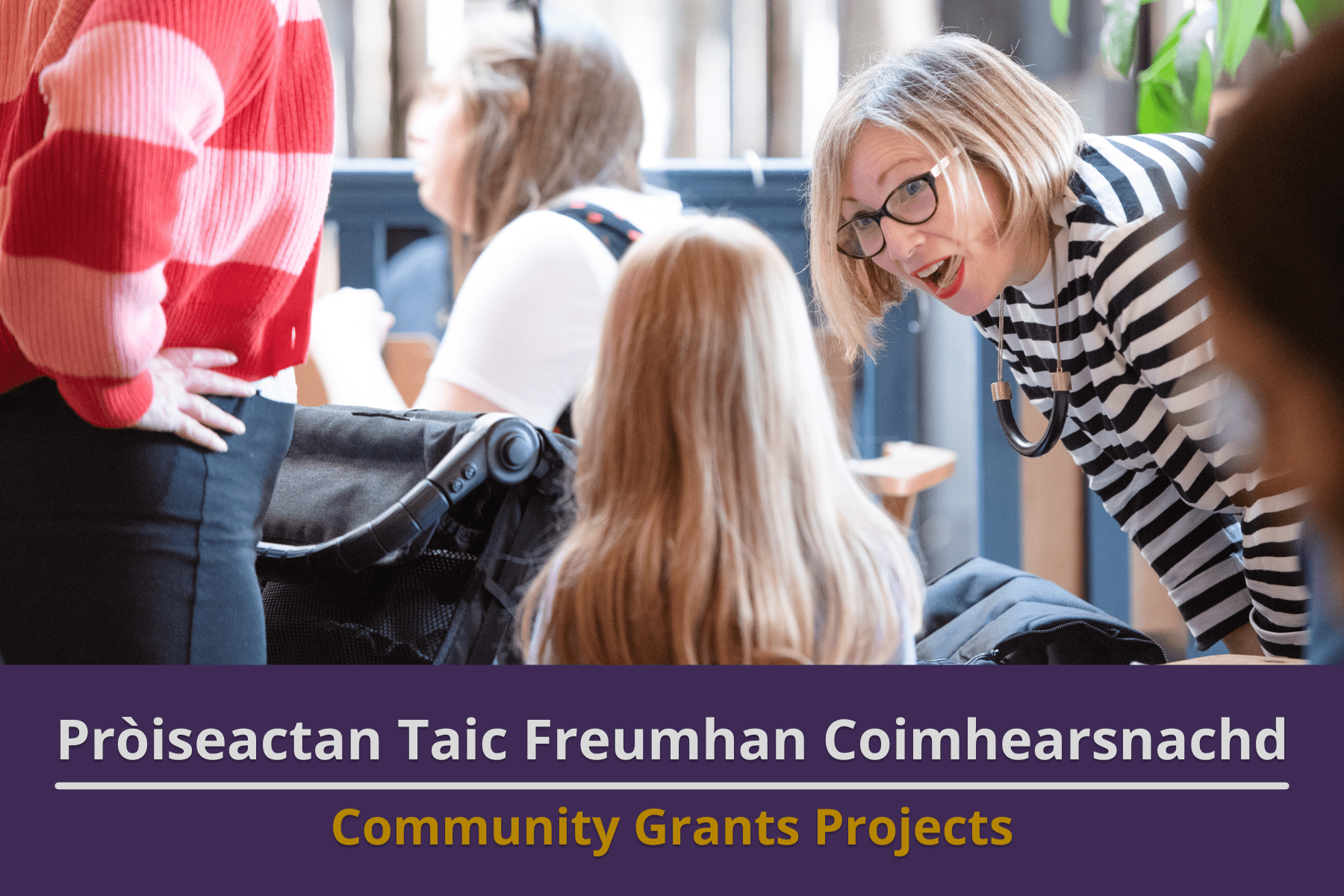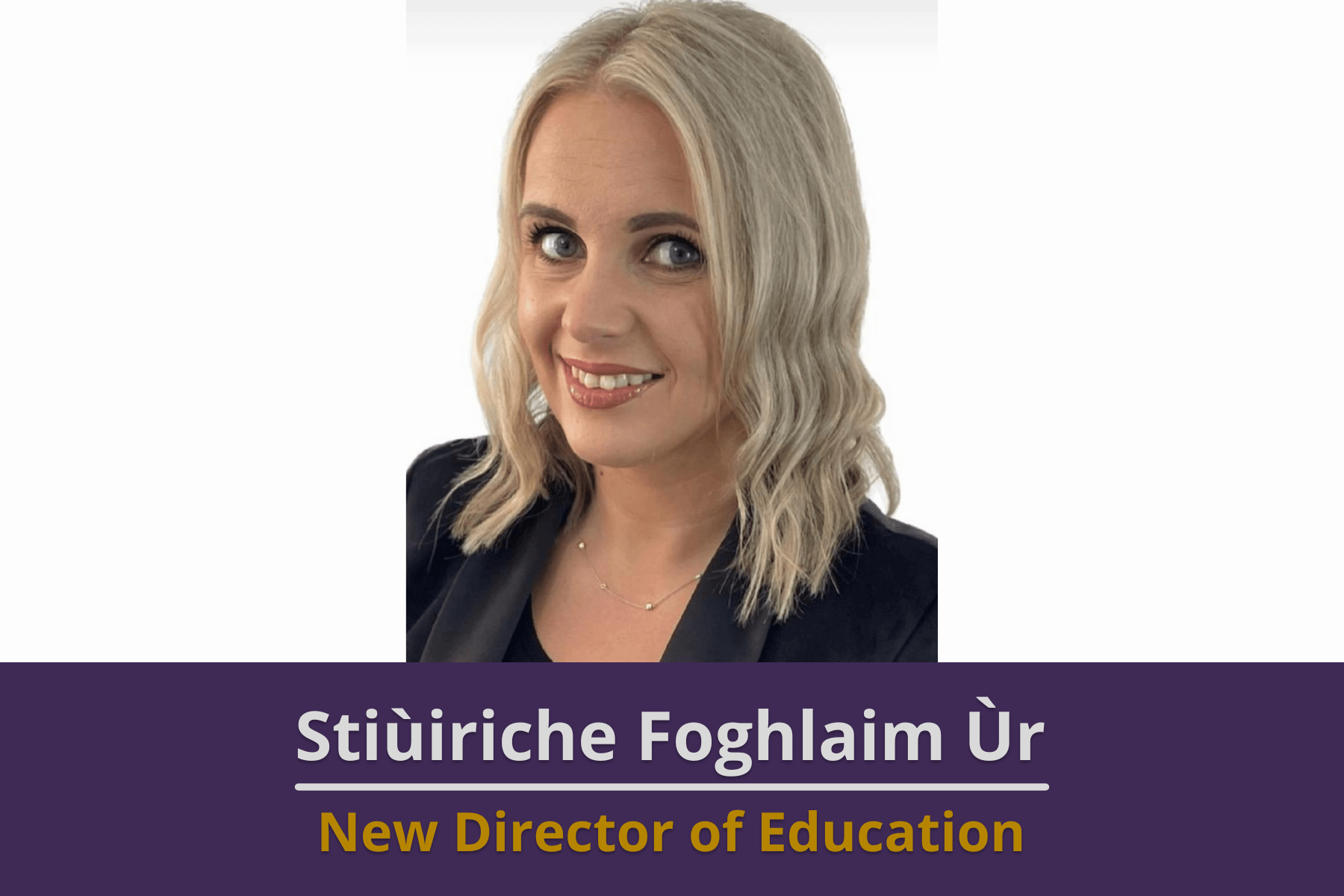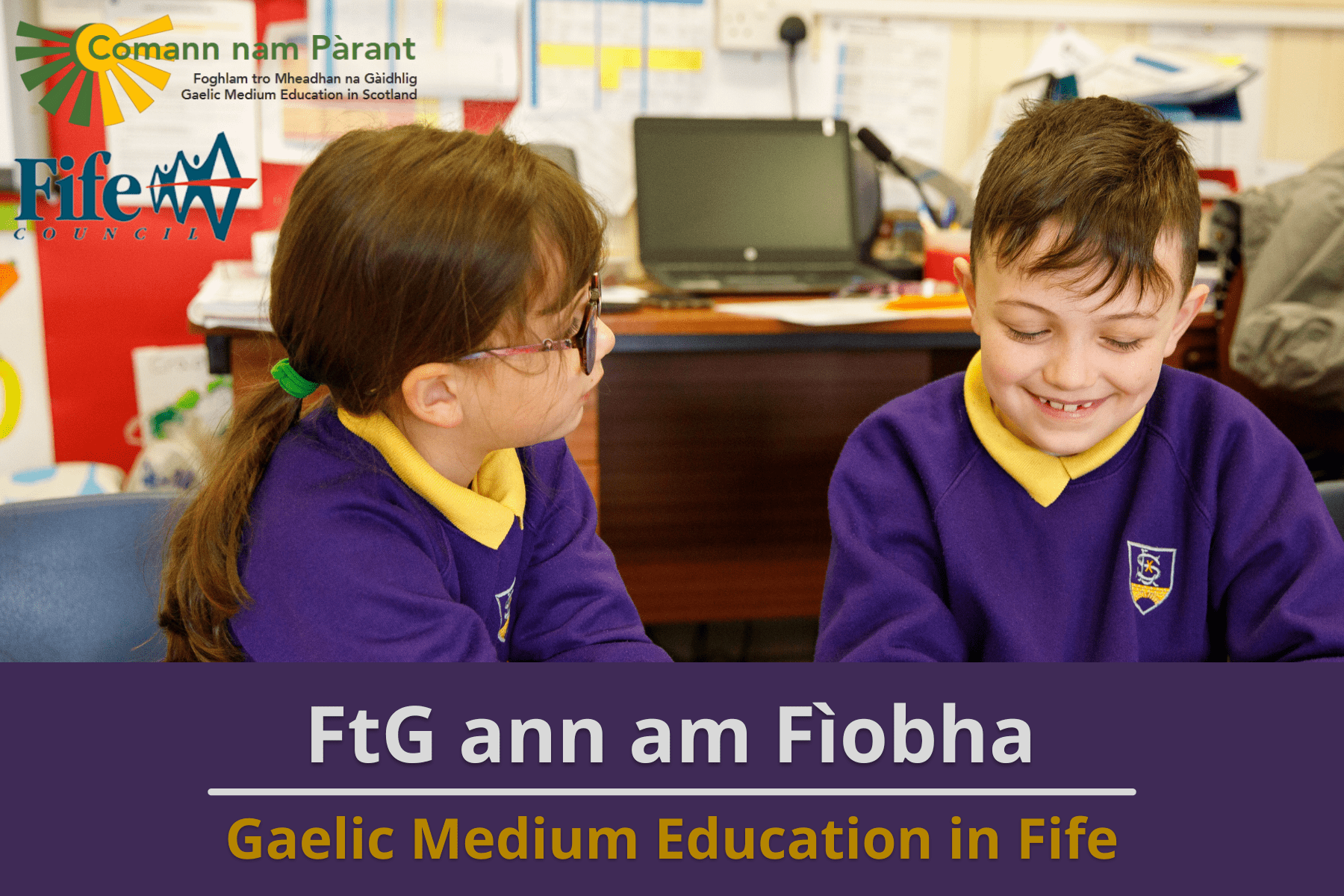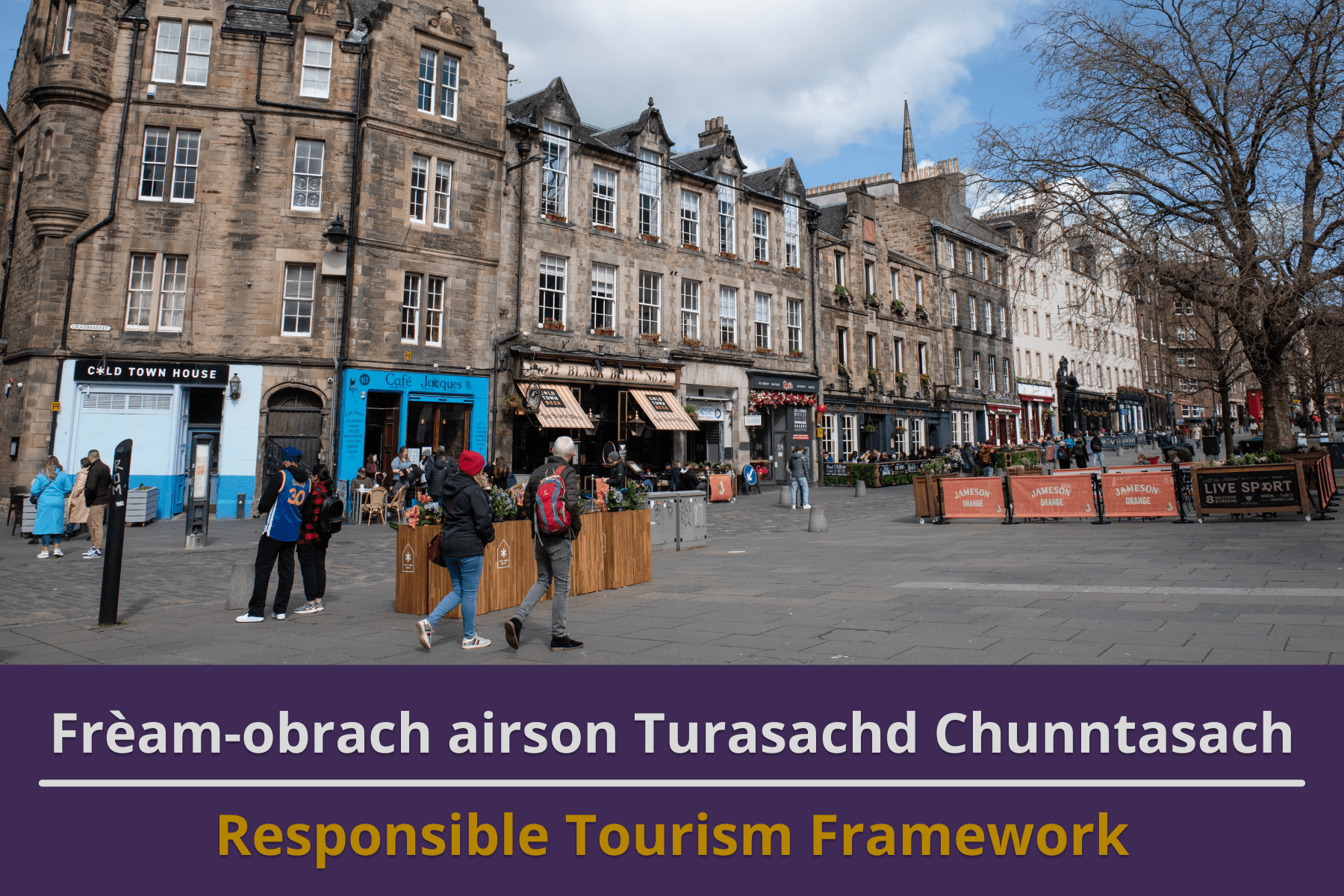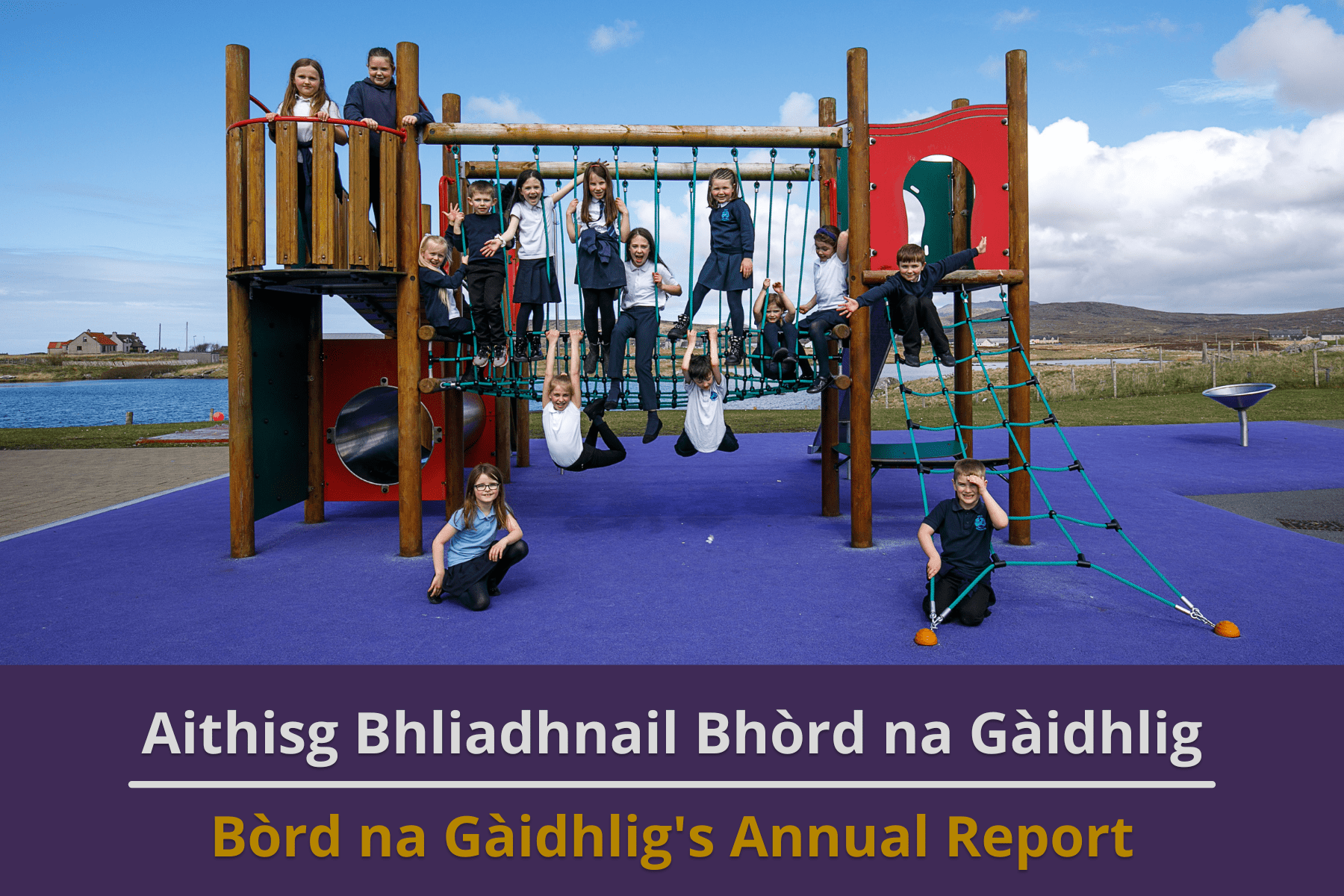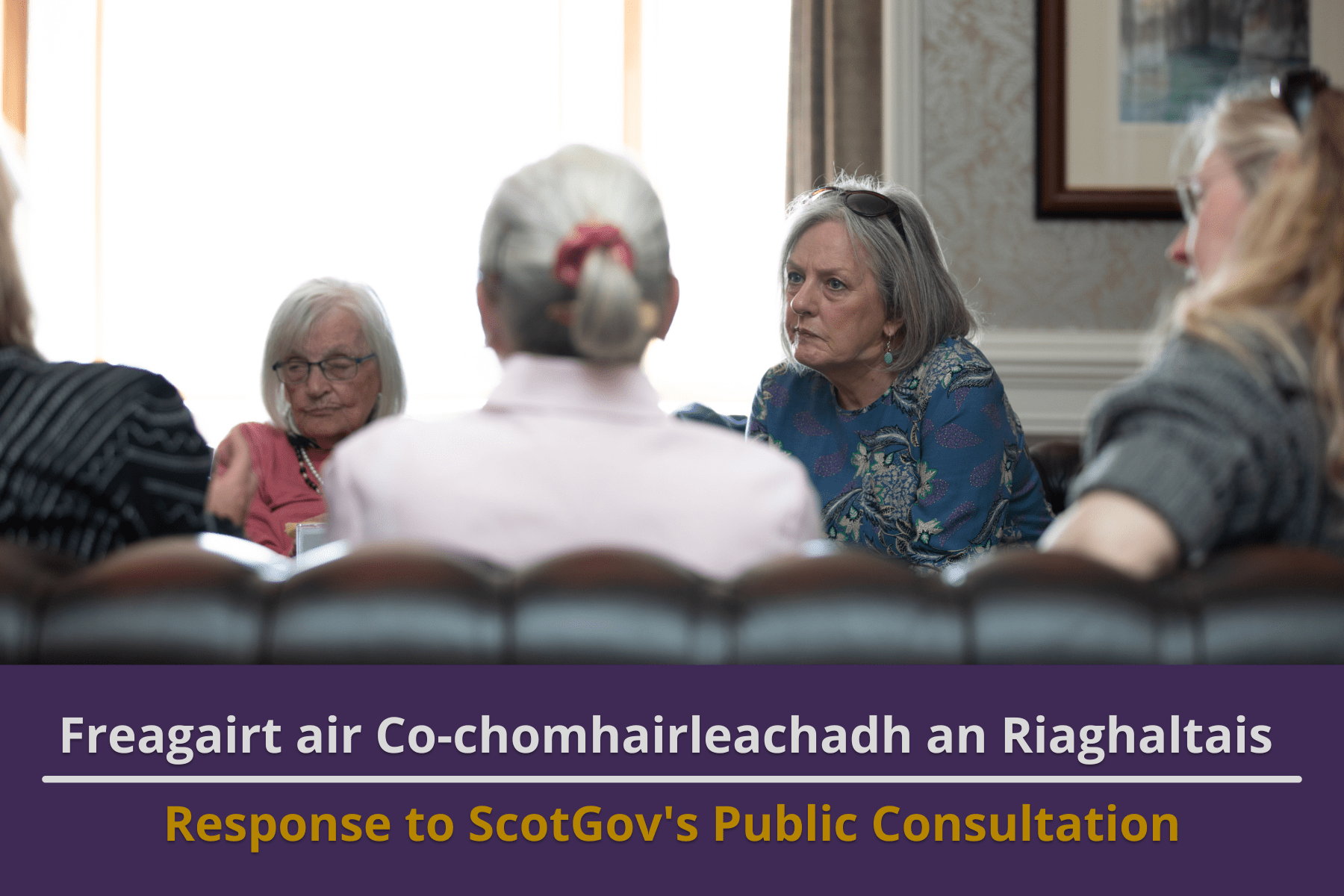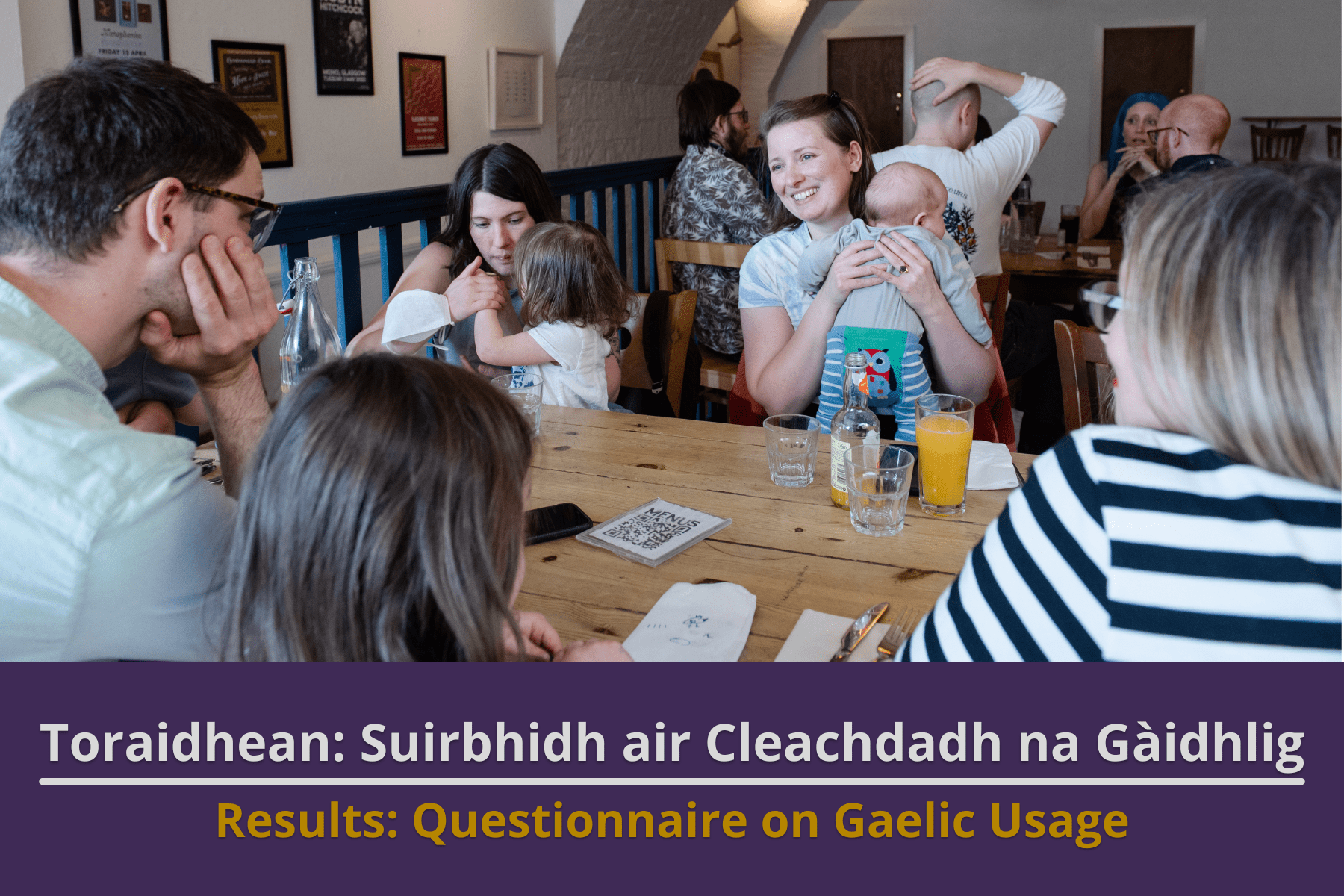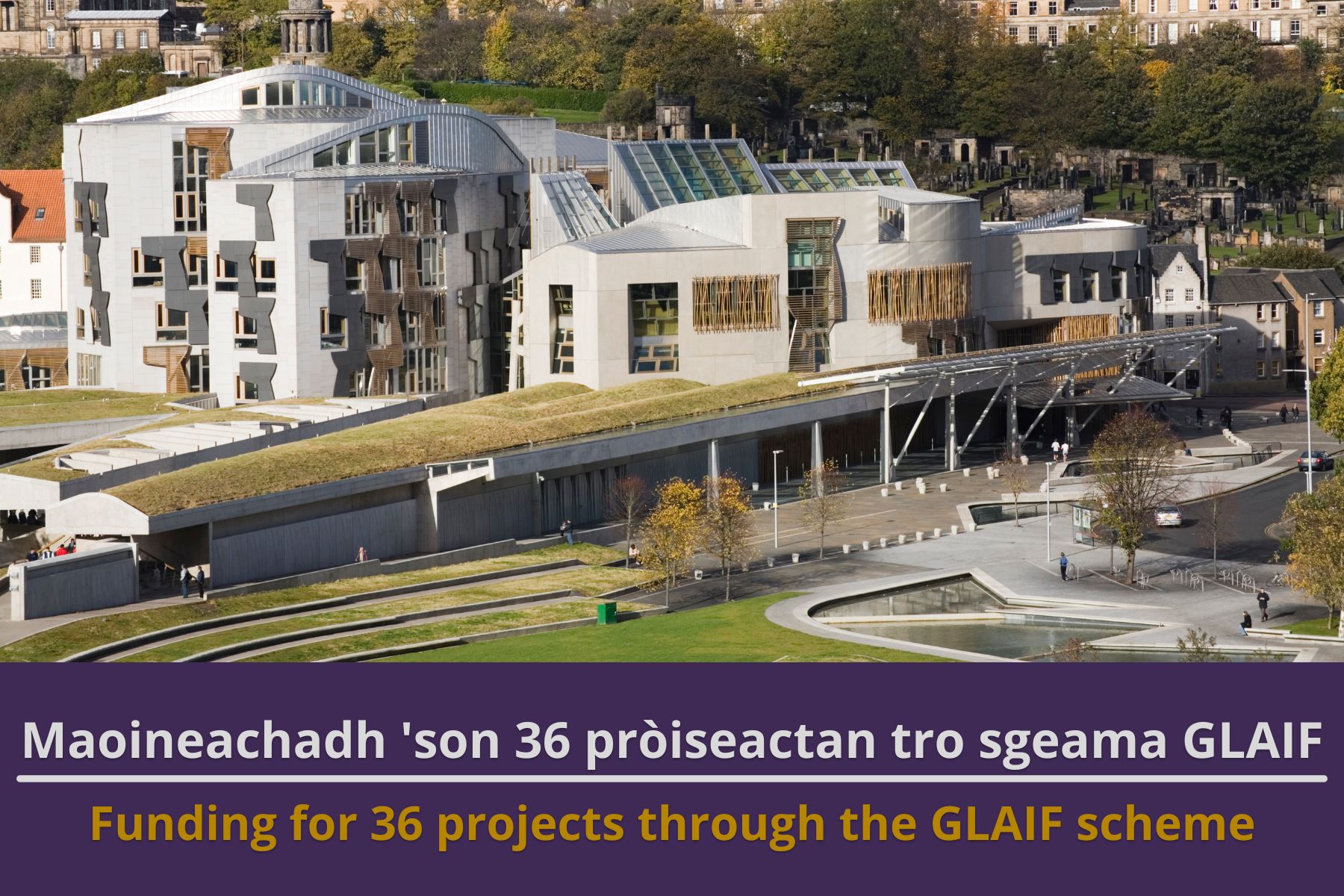Bòrd na Gàidhlig provide funding to community groups for 60 Gaelic projects.
Bòrd na Gàidhlig has awarded over £171,000 to 60 Gaelic projects as part of their Taic Freumhan Coimhearsnachd (Community Grants) scheme – Bòrd na Gàidhlig’s primary fund for supporting organisations in delivering projects to promote and increase usage and learning of Gaelic at community level.
Organisations from throughout Scotland will benefit from the awards, ranging from primary schools and Gaelic groups, to a community circus and a dementia charity.
Portree High School is the biggest recipient following an award of £5,000 towards supporting over 130 pupils currently receiving part of their education through Gaelic. The school says it wants to strengthen the Gaelic community, develop skills, grow confidence in working together, as well as encourage connections with other Gaelic speakers.
Alzheimer Scotland has been provided £4,000 to deliver Fàs na Gàidhlig, developing on their Còmhraidhean sa Ghàidhlig / Gaelic Conversations project, the charity want to keep up the momentum by engaging with people living with dementia and their carers, family and friends and to build on the intergenerational links created with the Gaelic primary schools in Skye, Lochaber, and Wester Ross.
Artsplay Highland has also received £4,000 for their Ceòl agus Ceilidh project, which will enable them to deliver a total of 39 workshops across three Gaelic medium nursery groups within Drumnadrochit, Dingwall and Tain.
Among the many other organisations receiving funding are James Gillespie’s High School in Edinburgh, who have been awarded £1,750 to enhance their Gaelic offering in the capital.
Glasgow Community Circus CIC has been awarded funds to offer classes in Gaelic for young people between 6 and 18, to learn skills such as trapeze, gymnastics and unicycle, while Kingoldrum Village Hall in Angus has been provided funding for its Gaelic in the Glens project.
Bishopbriggs Academy has been recognised with an award to fund its Gaelic podcast project, while West Primary School in Renfrewshire has been awarded £1,750 to pay for Gaelic lessons for parents who have children in Gaelic-medium education, as well as school staff who want to learn the language.
Friends of the Elphinstone Institute in Aberdeen have been awarded £2,500 for Seinn Spioradail, a year-long touring exhibition with audio-visual material including a digital archive, 15 minute film and website to be launched in January 2024. Meanwhile, the Dingwall Players have received £800 towards a Gaelic artist in residence.
Mairi MacInnes, Chair of Bòrd na Gàidhlig, said:
“We are delighted to support all of these wonderful communities as they promote and increase the use of Gaelic at both local and national level. This latest round of funding shows the impact that Bòrd na Gàidhlig has with organisations, charities and community groups across the country as we look to increase the reach of the Gaelic language together.
We are committed to helping organisations deliver projects at a community level that will not only increase the usage of Gaelic, but also engage the next generation as we continue to put the language at the heart of communities across Scotland.”
Bòrd na Gàidhlig runs funding schemes at different times throughout the year. If you have a proposal for a project please email: tabhartas@gaidhlig.scot, or phone 07584 103 944.
Funding Recipients
Aberdeenshire
Friends of the Elphinstone Institute – £2,500
Fèis Obar Dheathain (Aberdeen Festival) – £940
Angus
Kingoldrum Village Hall – £3,500
Argyll and Bute
Tighnabruaich District Development Trust – £2,000
Comunn Gàidhealach an Òbain – £3,000
Air Ghleus – £2,000
Co-roinn Ghàidhlig Mhuile agus Idhe – £1,200
Comunn Gàidhealach Muile – £3,000
Edinburgh
Bothan Dhùn Èideann – £3,500
Traditional Dance Forum of Scotland – £3,000
Edinburgh Napier University – £3,000
Àrd-sgoil Sheumais Ghilleasbuig – £1,750
Dumfries and Galloway
Gàidhlig Dumgal – £3,500
East Ayrshire
East Ayrshire Gaelic Forum – £3,000
East Dunbartonshire
Bishopbriggs Academy – £240
Bishopbriggs Gaelic Group – £2,500
CnP Meadowburn – £2,000
East Renfrewshire
Gàidhlig san Dachaigh Glaschu a Deas – £3.700
Glasgow Community Circus CIC – £2,750
Glasgow
Lingo Flamingo – £4,000
The Highland Society of London – £800
Gàidhlig san Dachaigh (Glaschu) – £3,000
Comhairle nam Pàrant Bun-sgoil Ghàidhlig Ghleann Dàil – £4,000
Ceòl is Craic – £4,000
Mount Cameron Primary School – £3,000
Comunn na Drama – £3,850
Highlands
Munlochy Gaelic Group (Black Isle) – £3,000
Knoydart Foundation (Caol and Mallaig) – £3,750
Glenfinnan Community Facilties SCIO (Caol and Mallaig) – £2,200
Dingwall Players (Dingwall) – £800
Fèis Chataibh (East Sutherland and Edderton) – £3,000
Sabhal Mòr Ostaig (Eilean a’ Cheò) – £4,000
Gàidhlig san Dachaigh (Eilean a’ Cheò) – £1,000
Alzheimer Scotland – Action On Dementia (Eilean a’ Cheò) – £4,000
Bun Sgoiltean Chille Mhoire agus Stafainn (Eilean a’ Cheò) – £3,800
Ionad Thròndairnis (Eilean a’ Cheò) – £4,000
Àrd-sgoil Phort Rìgh (Eilean a’ Cheò) – £5,000
Urras an Taobh Sear (Eilean a’ Cheò) – £3,000
Meur Loch Abar (Fort William and Ardnamurchan) – £4,000
Fèis Lochabair (Fort William and Ardnamurchan) – £1,750
Artsplay Highland – £4,500
Lairg & District Learning Centre (North, West and Central Sutherland) – £4,500
North West Training Centre (North, West and Central Sutherland) – £1,500
Comann Nam Pàrant Baile Dhubhthaich (Tain and Easter Ross) – £4,000
Fèis Air an Oir (Thurso and Northwest Caithness) – £3,000
North West Highlands Geopark (West Ross, Strathpeffer and Lochalsh) – £2,400
Inverclyde
Inverclyde Gaelic Learners Group – £1,000
Outer Hebrides
Urras Coimhearsnachd Bhràdhagair agus Àrnoil (West Side and Ness) £4,480
Dòchas Dancers (Barra) – £4,000
Sràdagan Sgìre Ùige (Uig and Carloway) – £2,500
Urras an Taighe Mhòir agus Comunn Eachdraidh Loch Ròg an Ear (Uig and Carloway) – £3,250
Sruth-mara (Uig and Carloway) – £3,850
Dòrlach – £4,000
Renfrewshire
West Primary School – £1,750
ClannGàidhlig – £1,800
South Lanarkshire
Thornton Road Community Centre Association – £1,000
East Kilbride Gaelic Group – £2,500
Clydesdale Community Gaelic Initiative – £3,750
Calderglen High School – £3,500
Stirlingshire
Fèis Fhoirt – £1,200
You can find more information about our funding schemes, including those that are open to applications now here.
See a full breakdown of the projects we have awarded funding on GrantNav.

